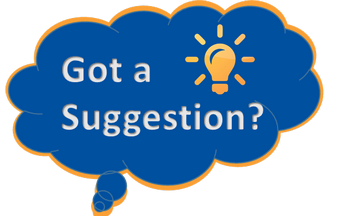
This great question was recently emailed by Prof. Eileen Pizzurro, Director of Academic Success & Bar Studies at Rutgers Law School to me and to Prof. Daniel Edelson (founder of USLawEssentials and Director of Academic Success at Seton Hall Law School.)
It gets at the challenge many law schools face in supporting international students–particularly those in JD programs as opposed to LLM programs–since those in JD programs need to take Constitutional Law with all the American JD students. And of all the 1L courses, Constitutional Law in the US has a particularly high degree of the kind of background and cultural knowledge that you absorb by growing up and going to school in the US.
And it’s frequently academic support faculty, legal writing faculty, and occasionally legal English faculty who find themselves needing to provide self-guided resources (because who has the time to teach a 1-on-1 Constitutional Law seminar?) to students thrown into the water and trying to learn to swim.
“Do you have any resources you recommend for international students trying to get their bearings in constitutional law?”
After hitting send on my email reply, I realized this should be a blog post so that other instructors out there have something they can easily refer students to when asked this question.
Below is my response. Though I’m happy to add more if others have suggestions:
1. USLawEssentials videos on the Constitution and Fundamentals of the US Legal System

Easily accessible (for free) on YouTube and created by Prof. Daniel Edelson (Director of Academic Success at Seton Hall Law and the founder of USLawEssentials), these often animated videos may be the quickest and easiest way for non-native English speaking lawyers/law students to start getting their head around the US Constitution and related topics in the US legal system.
In particular, there are playlists (i.e., multiple videos on a related topic) relate to Constitutional law on topics such as Constitution: The Federal Government and Important Freedoms (30 videos) and The Constitution: Tests for Constitutionality (18 videos). There are plenty of other helpful explainer videos Daniel has created that might be helpful. But those two playlists are good place to start and will give a learner plenty to do. Notably, Daniel has a great knack for communicating in a way that is intended specifically and very accessible for non-native English speakers.
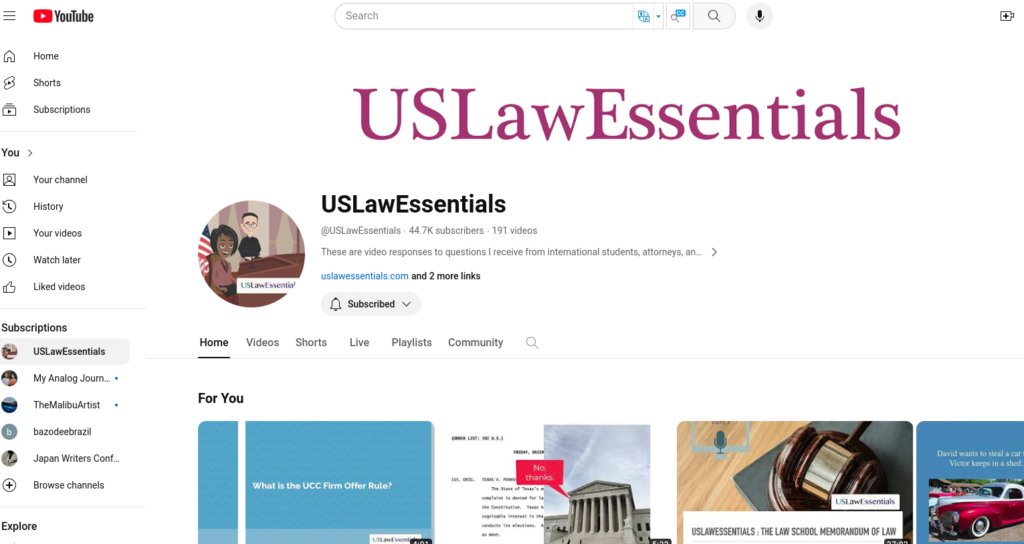
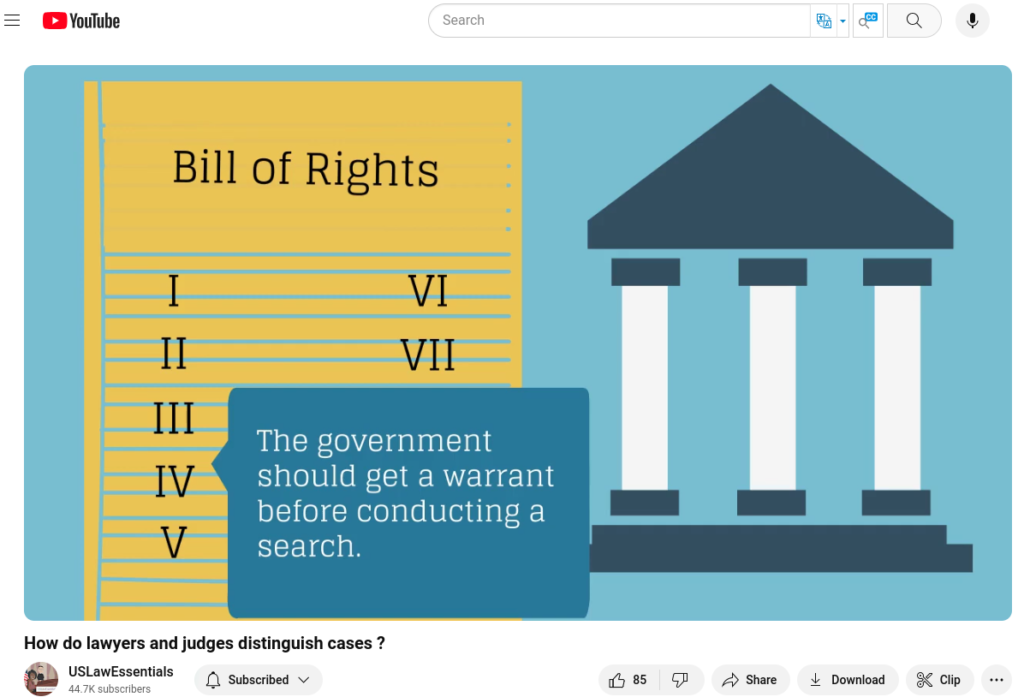
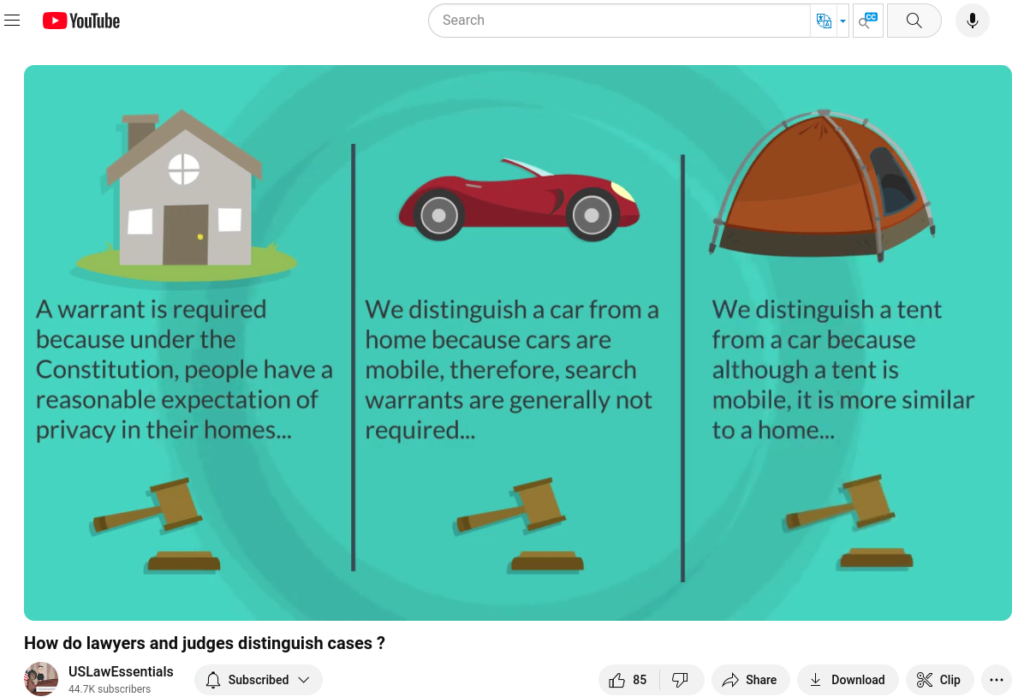
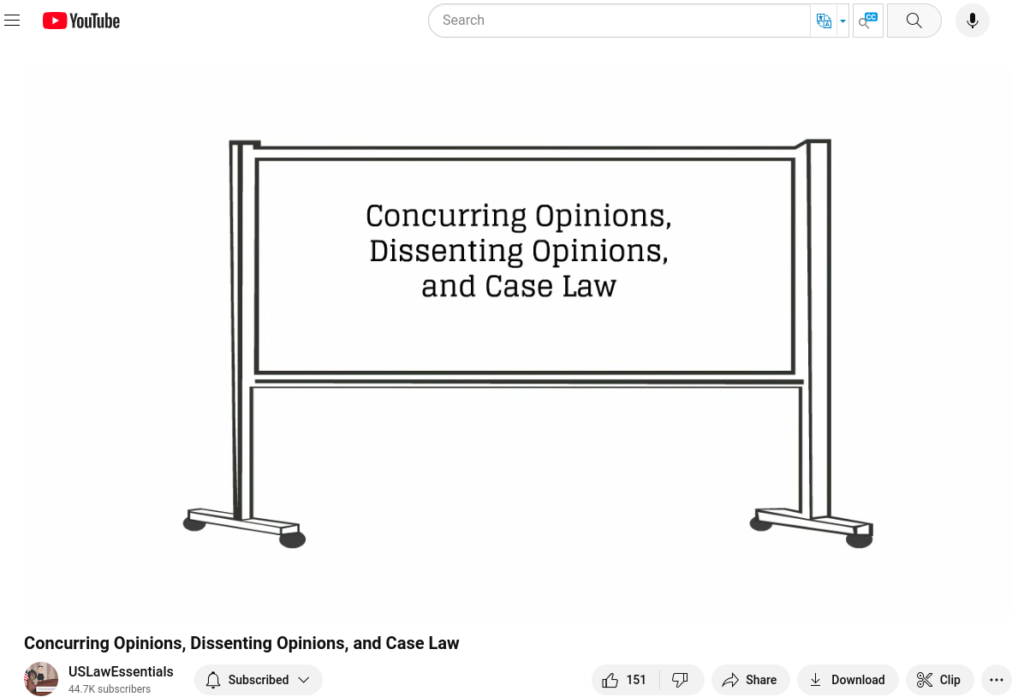
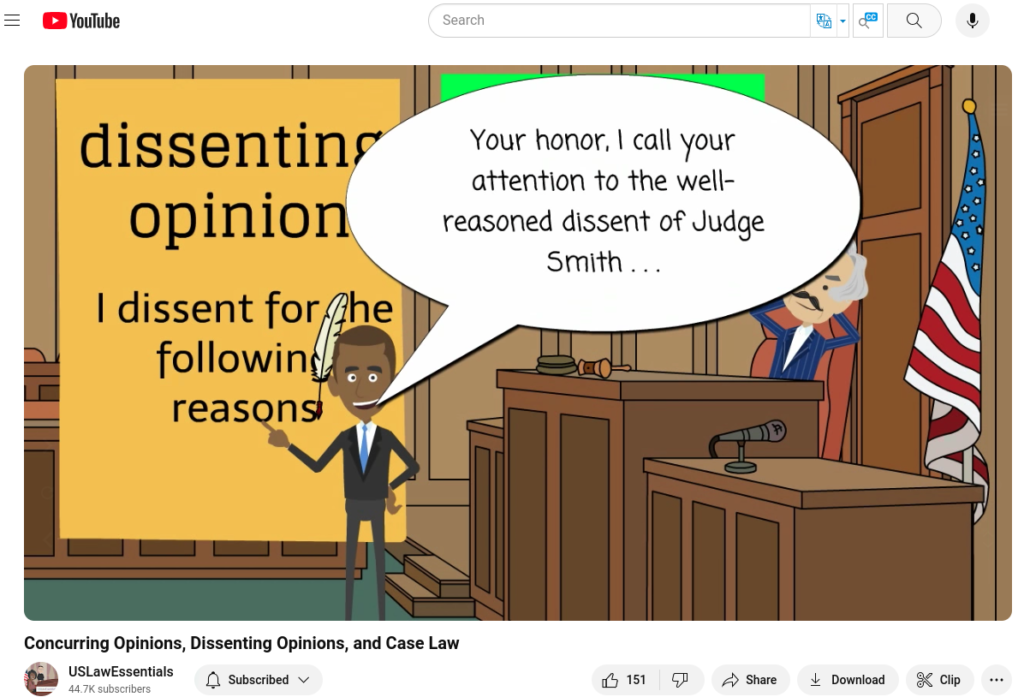
***
2. USLawEssentials self-guided online pre-LLM course
Daniel Edelson and I have created an online self-guided pre-LLM course program based on curriculum we’ve developed and taught in the past. It’s currently being provided on a pro bono basis to Afghan judges and lawyers in connection with the ABA Afghan Legal Professionals Scholarship & Mentoring Pilot Program. Certain course modules focus on the Constitution and fundamentals of the US legal system. (Others focus on Case Reading & Analysis; Fundamentals of Legal Writing; the US Civil Litigation System; and a Law & Language podcast-based study module.) The course has not yet been made generally available. But if anyone has interest–either as an individual or an organization–you can contact Daniel Edleson at daniel@uslawessentials.com.
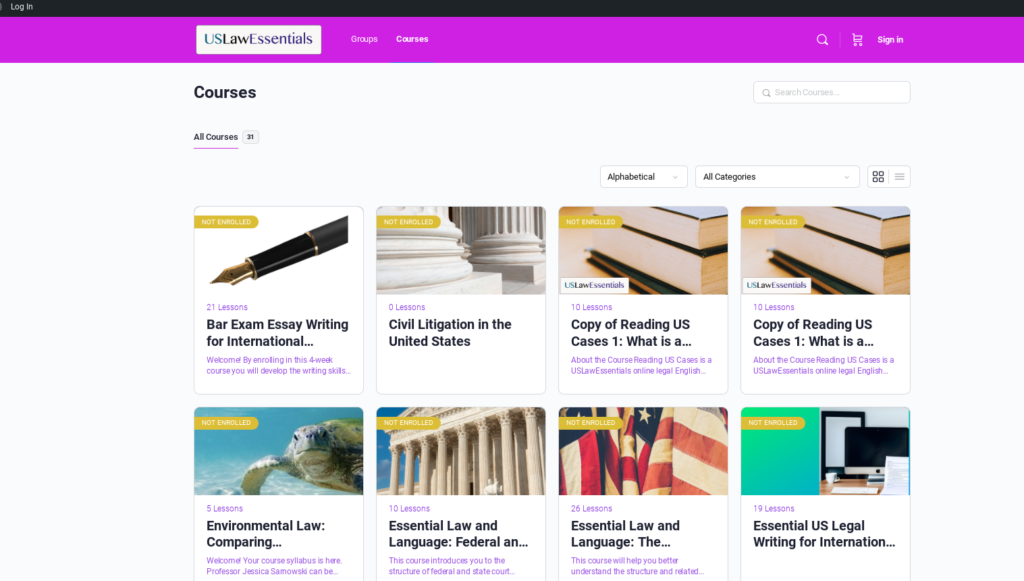
***
3. Georgetown Legal English Blog
The Legal English Resources page lists various books and podcasts, among other items, that may be helpful to learning about US Constitutional Law and related topics.
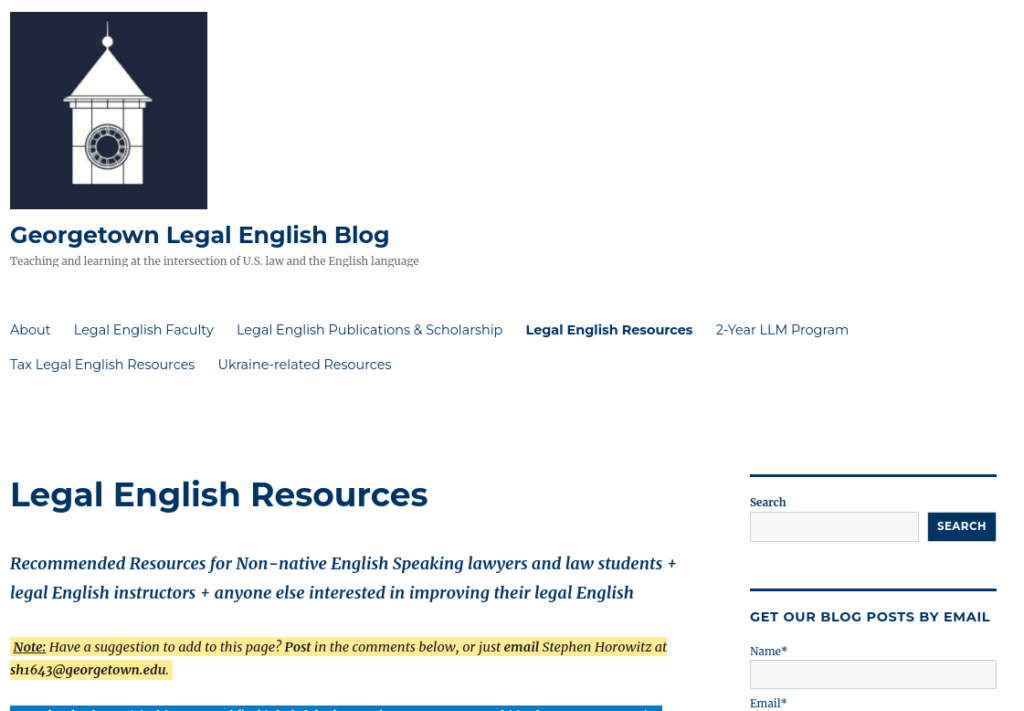
***
4. Civics101 Podcast
An extensive series of podcast episodes, created by New Hampshire Public Radio, which are great explainers on a wide range of relevant topics.
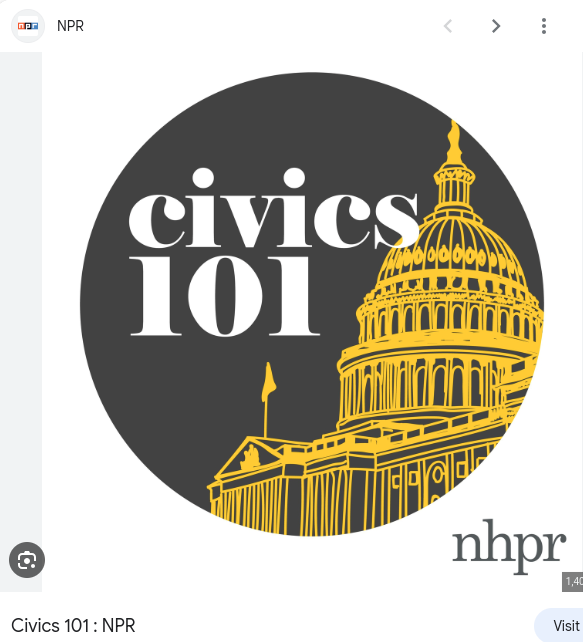
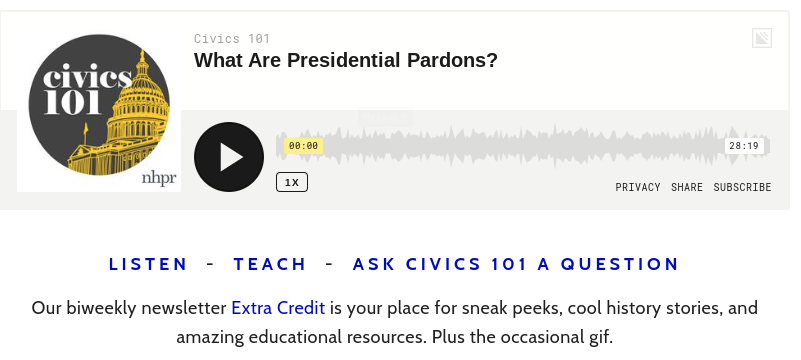
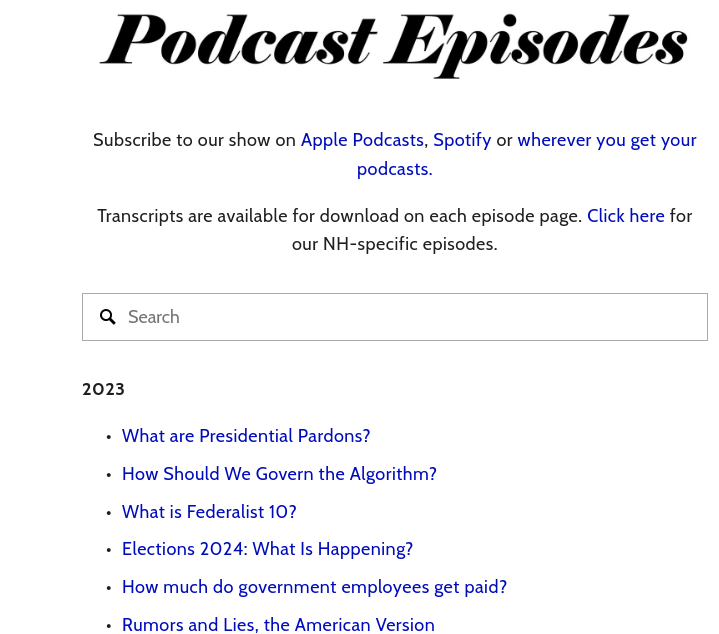
***
5. iCivics.org
An online gamified way to let US school students teach themselves about US government and constitution. Many (most?) schools in the US are using this to teach civics to their students. (My 10 year old daughter has been using it a lot lately.)
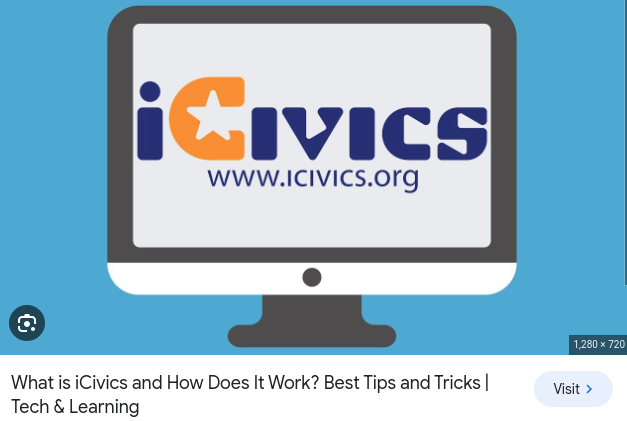
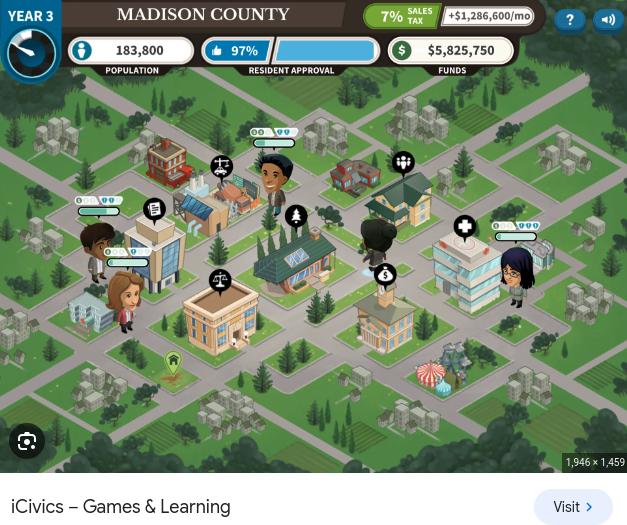
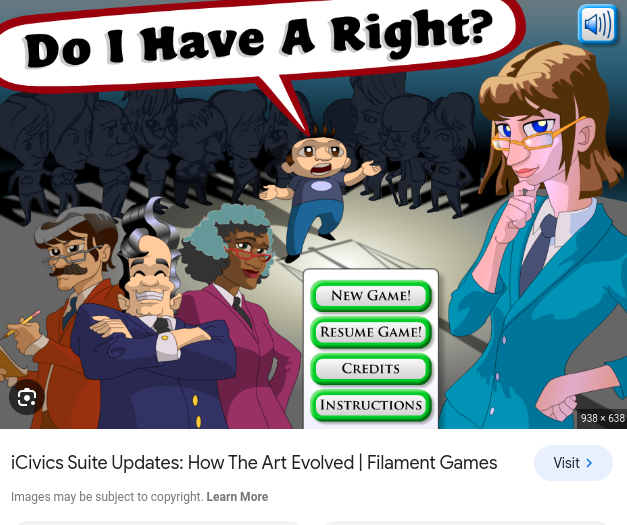
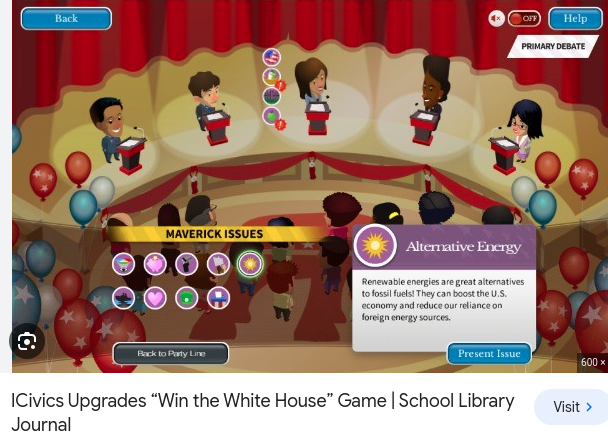
***
6. Khan Academy
Khan Academy has a large library of lessons that might be helpful. I once went through all the offerings that seemed possibly relevant (there’s a lot!) and pulled out ones that might be helpful for my students. Then I organized them into a “course” on the Khan Academy website and titled the course “OLE: US Legal System-Core Concepts & Vocabulary (supp). A fair amount of the lessons I think were intended for AP History/Government students in US high schools. I haven’t used it in a while, but it still exists. So if you don’t feel like looking for all the lessons yourself, feel free to just join my course. Here’s the link for the OLE: US Legal System-Core Concepts & Vocabulary “course.”. And the join code for my “class” is VQ6XUCKW if you need it.
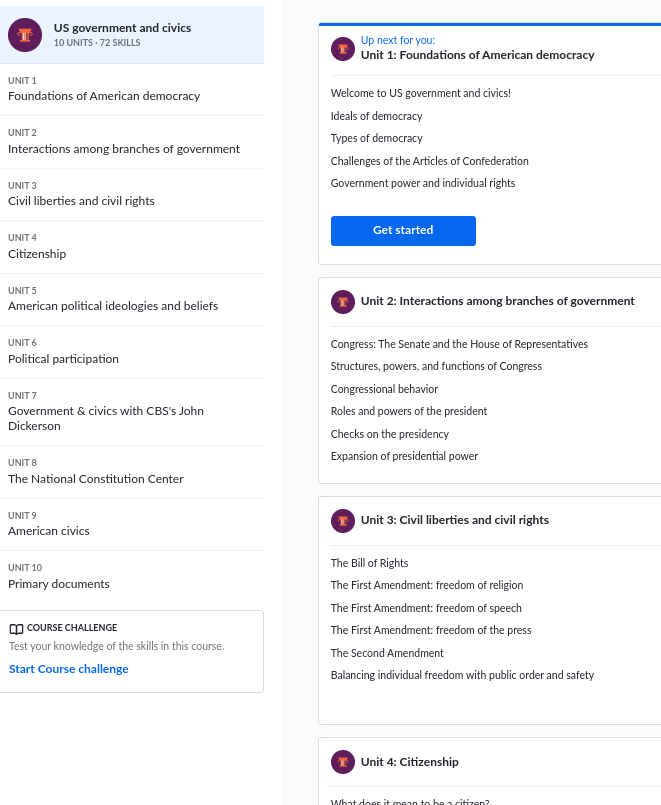
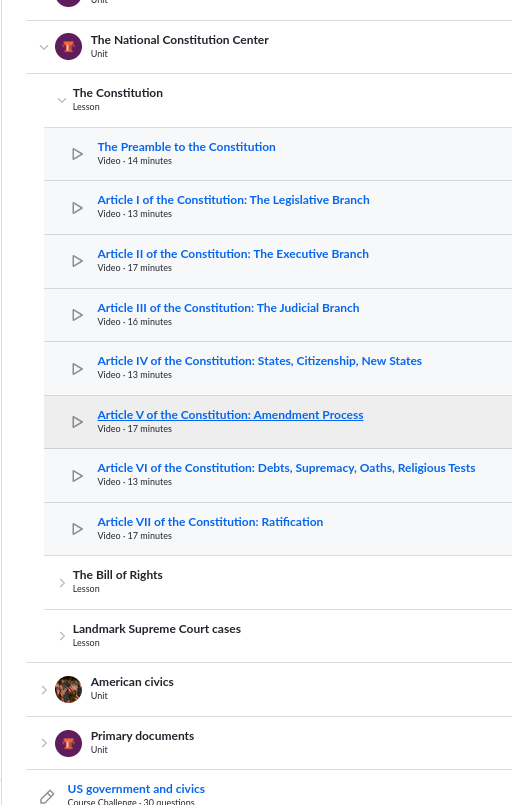
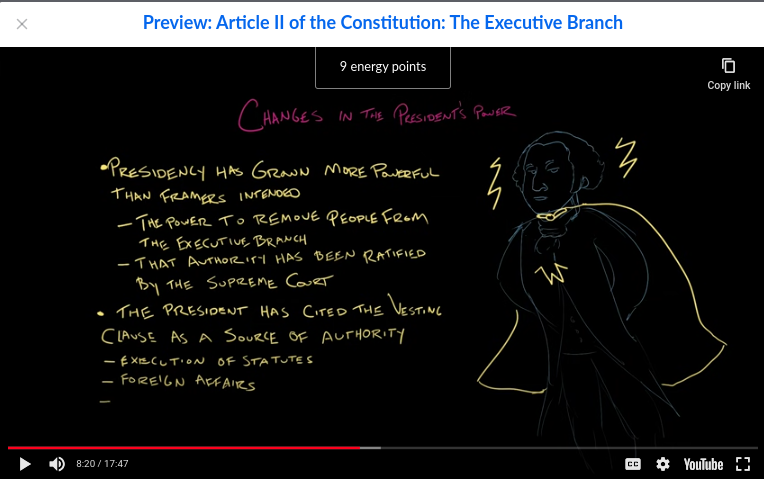

***
7. Street Law: Understanding Law and Legal Issues, Student Edition (Civics & Government)
Intended for high school students as a practical guide to US law, government, and civics. But great for non-native English speaking lawyers and law students because it is rich in law-related vocabulary and US legal system concepts, it’s easier to read than a law school textbook, and it has a great glossary in the back of the book.
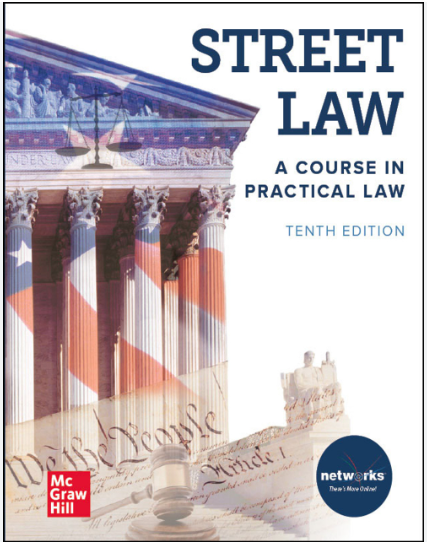
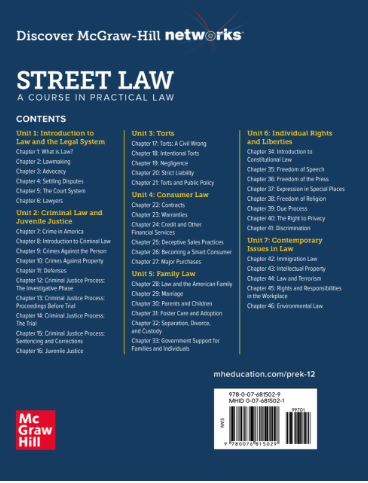
***
8. US Government Resources
Recommended by Prof. Susan Landrum, Dean of Students and Assistant Dean of Academic Administration, University of Illinois College of Law
These are some additional resources on U.S. government resources that my students have found helpful in the past:
- U.S. Government website: Branches of the U.S. Government
- U.S. Government website: How Laws are Made and How to Research Them
- U.S. Courts website: About Federal Courts
- U.S. Department of Justice website: Introduction to the Federal Court System
- Federal Judicial Center’s website: About the U.S. Courts: General Information
9. Netflix series: “We the People”
Recommended by Prof. Bythia Louzoun, a legal English lecturer at the Academic College of Natanya in Israel where she teaches classes with Muslim, Jewish, and Druze students together in the same class. In addition to English language, Prof. Louzoun also teaches Hebrew and French.
Additional suggestions from Prof. Louzoun include:
“The Judicial Learning Center“ – Great activities, short quizzes, and simple explanations.
ProCon.org – A great website for debates!
Federal Law Enforcement Training Centers: The Informer – My students love the Informer from FLETC. And their “FLETC Office of the Chief Counsel“ podcast on Spotify (and YouTube series “FLETC Talks“) is very helpful in explaining criminal procedure under the 4th Amendment. (Warrantless searches are a big part of our syllabus!)
I use videos from iCivics -The Constitution Explained
I also use a lot of material from ICivics and Street Law and I create my own Quizlets.
**************************************
Do you have ideas and suggestions for other materials that should be included here?Maybe something that has been been helpful to you or someone else you know?
Just email stephen.horowitz@georgetown.edu and let me know. I’m happy to add more to this post. Thanks!
